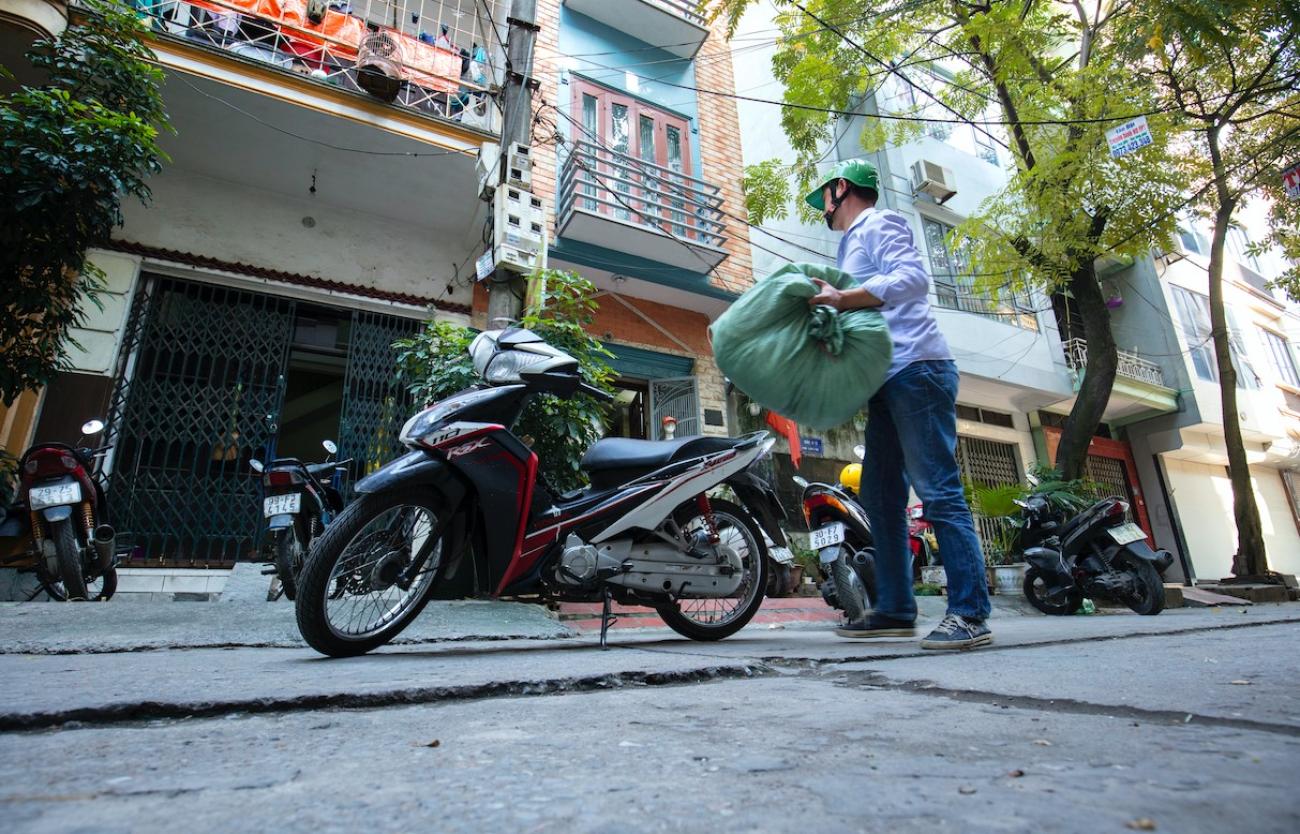Vietnam approves to roll-out Methadone Multi-day Take-home Doses to Further Strengthen Opioid Substitution Therapy

Viet Nam Ministry of Health approves to offer take-home methadone doses. The initiative has been supported by UNODC and UNAIDS.
Ha Noi (Viet Nam), 10 February 2021 - 2020 witnessed a critical step forward in the implementation of HIV harm reduction in Viet Nam where the final stages were completed in rolling out of the take-home Opioid Substitution Therapy programme.
Twelve years ago, in 2008, the very first client received a dose of methadone in Viet Nam. Since the inauguration of this vital lifesaving intervention, over 160,000 clients have made use of the service with some 52,000 currently utilizing the service as of end 2020 [i].
After a decade of Methadone service delivery, a review of the programme was conducted in 2018 highlighting the success of the scheme and that its high-quality implementation was consistent with all national standards. Discussion progressed to ways to improve the service to overcome access barriers including the requirement of daily travel clients to the dispensing clinic. The answer was found in take-home methadone.
Take home methadone is breaking down barriers for clients who would otherwise be unable to remain in treatment. This was found not only to be effective in empowering people who use drugs (PWUD) but compatible with COVID-19 restrictions on movement. In fact, a desire for the continued delivery of the existing methadone programme combined with the strict social distancing rules of COVID-19 was key to garnering the political support necessary to achieve nationwide approval.
Through eliminating transportation time and costs to present in person at the methadone clinic, the take-home doses will not only help to improve the lives of people with substance use disorder but will also have a positive impact on their families and the community. “When receiving news about take-home doses in Dien Bien, me and my family were very happy. I started methadone therapy in 2012 and thanks to it, I was able to give up injecting heroin and have had a job in a house painting company since then. However, the fact that I have to travel to a dispensing clinic everyday often made me late for the job” mentioned a male client from Dien Bien Province. Naturally, the increase in autonomy afforded to PWUD through take-home doses will better enable clients to manage their professional and family lives.
UNODC and UNAIDS have together played a pivotal role in drafting the technical guidelines for the operation of methadone programmes both in-person and take-home. This accomplishment represents a huge step forwards for HIV prevention, treatment and care among people who use drugs, and it was achieved thanks to the collaborative efforts of UNODC and contributing bodies over past decade including Harm Reduction International, INPUD, UNAIDS and countless CSOs. It is hoped that this collaborative support by various organisations will broker further developments of HIV harm reduction programmes in Viet Nam. At present, this has translated into paving the way towards effective implementation of similar strategies in other countries in need of effective solutions.
The programme, which will begin in early 2021, will be initially introduced as a pilot scheme across three provinces. The community of healthcare workers have emphatically welcomed the introduction of the scheme with Dr. Tran Thi Len, physician from Thuy Nguyen Methadone Clinic, Hai Phong City commented, “I was very excited when hearing about take-home methadone doses. I believe this is a very good solution, good for us as service providers and especially good for my clients”.
“Vietnam has a quite successful methadone treatment programme expanded to all of 63 provinces. However, we can keep only 52,000 patients on treatment out of the cumulative 160,000. As we understand it, geographical and transportation issues remain the biggest barriers for service retention” stated Dr. Hoang Dinh Canh, Deputy Director of VAAC at a take-home MMT advocacy conference (December 2020)
As the pilot scheme is rolled out in 2021, UNODC will continue to provide ongoing technical support for harm reduction strategies in Viet Nam and in a further 23 high priority countries. UNODC works to provide assistance in these regions in the development and implementation of comprehensive programmes for people who inject drugs. All programmes are guided by the UNODC/WHO/UNAIDS comprehensive package on HIV prevention treatment and care services.
[i] Vietnam Authority of AIDS Control-VAAC/MOH, 2020


